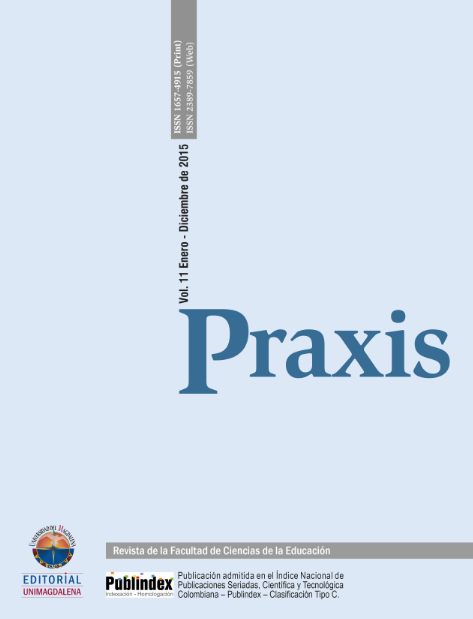Abstract
This paper is the result of a research that aim new didactical elements through a guiding module using TIC (Technologies of Information and Communication) for the electrical circuit laboratories of the faculty of Electrical Engineering in the Universidad de la Costa. The research begins identifying the current laboratories strategies in the local, national and international context using a descriptive-quantitative research methodology. This work showed the need to propose a guiding module that help students to develop the own knowledge, even helps to be autonomous to investigate, meditate and criticize the practice, and the role of the teacher is give a support with the proposals module guides in this research. According to the results, it is required a promotion and diffusion of the electrical circuits course using TIC to get the goal of a significant learning, that transform the traditional teaching methodology with this it is noted that using this tools ensure an improvement in the academicals performance.References
Ausbel, N. (1983). Psicología Educativa. Un punto de vista cognoscitivo 2°. México: Trillas
Díaz, F. (2011). Constructivismo y Aprendizaje significativo Artículo de revista cmap, Recuperado el 18 junio de 2015, de http://cmapspublic2.ihmc.us/rid=1249740839640_870475537_5794/constructivismoyaprendizajesignificativo.pdf
Briones, G. (1996). Métodos y Técnicas de Investigación para Ciencias Sociales. Recuperado el 2 de junio de 2014, de: http://www.textosdigitales.com.ar/CP/CICLO_BASICO/3.017_-_Fundamentos_Tecnicos/Briones_-_Metodos_y_Tecnicas_de_Investigacion.pdf
Hodson, D. (1994). Investigación y Experiencias Didácticas. Hacia un enfoque crítico del trabajo de laboratorio. Recuperado el 25 de mayo de 2014, de: http://www.raco.cat/index.php/ensenanza/article/viewFile/21370/93326
Islas, C. (2008). ¿Garantía de eficacia en los procesos de enseñanza aprendizaje en la educación superior? Artículo de revista Uso de las tecnologías (en la educación) Recuperado el 18 junio de 2015, de http://www.eveliux.com/mx/Uso-de-Tecnologias-en-la-educacion.html
Merchán, E. (2011). Aprendizaje significativo apoyado en la creatividad e innovación Artículo de revista Metodología de la ciencia, Recuperado el 18 junio de 2015, de http://www.ammci.org.mx/revista/pdf/Numero3/4art.pdf
Ministerio de Educación Nacional. Una propuesta para una educación sobre tecnología, ciencia y técnica. Santafé de Bogotá, 1999, de http://www.mineducacion.gov.co/proyectos/1737/articles-2767_recurso_nuevo_14.pdf

